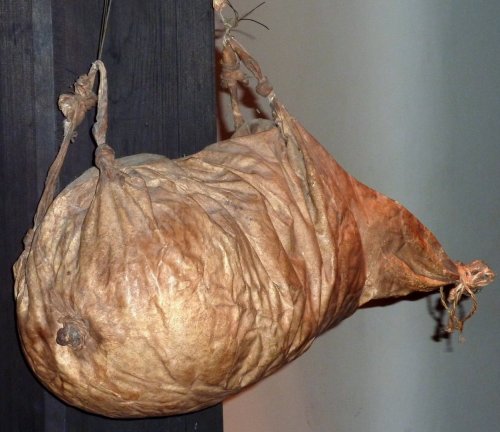Concerning Matt. 9.17; Mark 2.22; Luke 5.37, Morna Hooker writes:
“Matthew spells this out: ‘new wine must be put into fresh wineskins―that way, both the wine and the skins are preserved.’ As for Luke, his concern reaches not only to the old wineskins but to the old wine, for he adds a postscript to Jesus’ words to the effect that no one who has tasted old wine wants to drink new, since the old is better. And though connoisseurs of wine might agree with Luke’s assessment, it is a strangely conservative sentiment to find in Luke’s gospel―so strange, indeed, that commentators generally assume the statement to be ironic. How could Luke believe that the old wine of Judaism was preferable to the new wine of Christianity?” – Morna Hooker, “New Wine in Old Bottles”
I was interested to come across this saying in the Mishnah:
“Rabbi Meir said, “Look not at the flask, but at what it contains: there may be a new flask full of old wine, and an old flask that has not even new wine in it.” – m.Avot IV.27
This appears to be a direct contradiction of Jesus’ saying, perhaps an indication that wineskins and wine were a frequent metaphor of the day. Nonetheless, Jesus’ saying is superior in logic and force: it uses the striking picture of what actually happens to old wineskins, while R. Meir’s saying conveys no more than our English old saw, “Don’t just a book by its cover.”
I remain thoroughly puzzled by Luke’s additional note about the old wine being better. Jeremias (The Parables of Jesus) actually rejects Luke’s addition as an irrelevant interpolation, and it is tempting to believe him.

Just thinking aloud here: Might we have the parable backwards? Might Israel be the new wine, and the Church the old wine? Jesus is older than Abraham, and Sarah is the old wife, not the new slave wife. (Or Jesus is the old wine skin, and fasting, the new wine.)
By: Matt Petersen on December 2, 2013
at 2:29 pm
[…] 26. New Wine and New Wineskins […]
By: Links 18 – 6/12/13 | Alastair's Adversaria on December 5, 2013
at 6:11 pm
Reading Levinas, i came across the following quote from the Talmud that may be relevant (he doesn’t cite it):
R. Joshua b. Levi said: To the wine that has been kept [maturing] with its grapes since the six days of Creation. A famous vintage! An ancient wine that had not been bottled, or even harvested. A wine not given the least opportunity to become adulterated. Absolutely unaltered, absolutely pure. The future world is this wine. Let us admire the beauty of the image, but non the less question the meaning it might have.
By: Matthew Petersen on December 18, 2013
at 4:24 pm
Yes, that seems to be exactly what Jesus means: the new wine (which is paradoxically better than the old at Cana, though the Jews do not think so, but say, “the old is better”) is the New Creation, the Age (αιων) to come.
By: mattcolvin on December 18, 2013
at 5:02 pm
I’m not quite sure. The wine Rabi Jesus ben Levi (Luke 3.24, oddly) is mentioning in the Talmud is old wine, and only therefore, the age to come. (I don’t know if the English translation of Levinas put “world” for “age”–as even Wright does sometimes–or if Levinas translated the Aramaic “age” as “world”, or what.)
But, to use Lewis’ expression, it’s wine from the dawn of time.
Jesus of Nazareth’s wine, however, is older than that wine, since He is wine from before the dawn of time. Then again, Jenson (quoting Nazanzius) says that the Spirit is future.
I can’t piece all this together, but it seems significant.
By: Matthew Petersen on December 19, 2013
at 3:59 pm